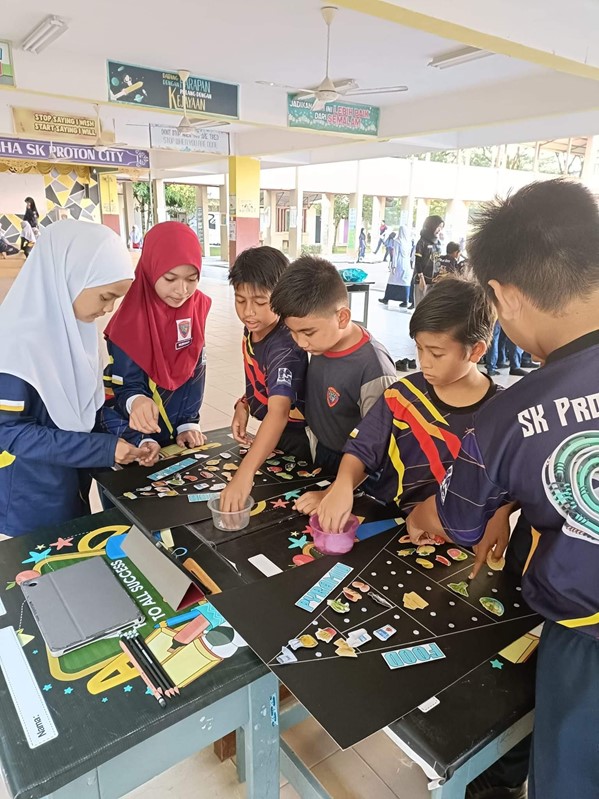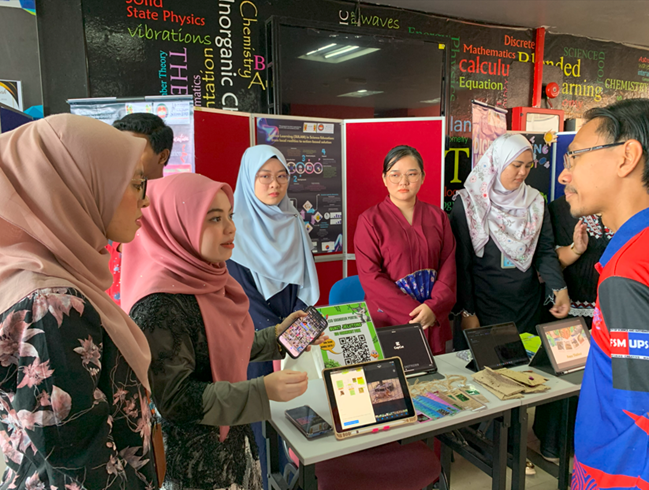The theme for Minggu Sains Negara (MSN) 2021 is “Science for Health”. MSN is an annual event organised by the Ministry of Science, Technology and Innovation (MOSTI) to raise public awareness of science. In conjunction with this event, we bring you the various STEM fields involved in medicine and healthcare, why science literacy is important for maintaining good health, and career opportunities in the healthcare industry.
What are the sciences in medicine and healthcare? The pandemic is adding more medical and science vocabulary to our daily conversation. It also strongly conveys that scientific knowledge or literacy among the general public is important for health decisions. The infodemic, fake news and pseudoscience are all so damaging. We need some basic knowledge of science to be able to filter through all the mountains of information.
Many do not understand the COVID-19 virus, how the virus spreads the disease, mutates and responds to vaccines. Lack of science knowledge is also a reason for vaccine hesitancy. This is causing a huge delay in getting enough people vaccinated to create herd immunity around the globe.
The good thing brought about by the pandemic is introducing science and scientists to the public. MRNA, viral vector, mutation, spike protein and antigen are all common words today. Yet, more basic scientific knowledge is needed to increase public awareness and compliance and curb the spread of the virus.
Understanding COVID-19 and taking the right measures is not the only problem. According to the World Population Review 2019, Malaysia has the highest prevalence of obesity among adults in Southeast Asia at 15.6 per cent. Why is our knowledge of nutrition and a balanced diet very low? Low awareness of dental health is another problem. Many only know cavities are caused by sugar. How many are aware that acid is a major culprit, and this includes fruit juices, which we think are healthy. Carbonated drinks are a double whammy as they are sweet and acidic.
Let us look at major critical science fields in medicine and healthcare. We all know biology is the core subject related to healthcare and medicine. Anatomy, microbiology, biochemistry and genetics are all biology. Most STEM students are keen to become doctors but Malaysia needs highly skilled engineers, chemists, mathematicians, statisticians, biologists and software engineers to create a robust healthcare system.
Let us have a look at physics and engineering. Walk into any hospital and look around. Modern medicine and healthcare rely heavily on engineering to deliver improved illness prevention, diagnosis and treatment. Imaging machines for ultrasound and X-rays provide doctors with images of our anatomy and help diagnose diseases. Many support systems, such as ventilators, dialysis and feeding tubes, are essential when patients cannot perform basic functions themselves. Then, there are artificial limbs and implants. A dental chair is a great example, too.
Let us now look at information technology and computer systems. Medical robots are now performing surgeries. Surgeons insert tiny video cameras into patients’ organs that allow them to see the inside of the organ on a computer screen. This allows fewer mistakes and makes the surgery less invasive as surgeons do not have to make large cuts 6-12 inches long. This takes a long time to heal and also leaves huge scars. Many healthcare IT solutions in hospitals are designed and implemented by software engineers.
IT allowed COVID-19 vaccines to be developed at neck-breaking speed. The virus’s genes were quickly sequenced using automated DNA sequencing machines, and special software analysed them to identify the best gene for the vaccine.
How about chemistry? Most medicines used as pharmaceutical drugs are synthesised using chemistry knowledge. The chemical structures are studied, modified and formulated, which involves a lot of chemistry.
Mathematics? Yes, the right dosage and prescription are all about mathematics. Have you heard the word epidemiology? That is a popular word during the pandemic. Epidemiology studies how diseases spread, their pattern, and the causes and risk factors in a population. There is a lot of mathematics in determining all these. Statistics is so important in the development of vaccines and drugs. Clinical trials are all concluded based on statistics. How the patients respond to a new drug is analysed using statistical models.
Realising that a healthy nation depends so much on science and STEM talent is very important. A healthy nation will be more productive, and we can reduce unnecessary healthcare budgets. Science literacy will lead to preventive healthcare where illness can be prevented, and the ageing population could lead to a quality lifestyle. We need many healthcare professionals in various STEM fields. The list can be long, but here are some: doctors and nurses, pharmacists, pharmaceutical engineers, software engineers, biotechnologists, chemists, biomedical engineers, molecular biologists, data scientists, mathematicians and statisticians.





